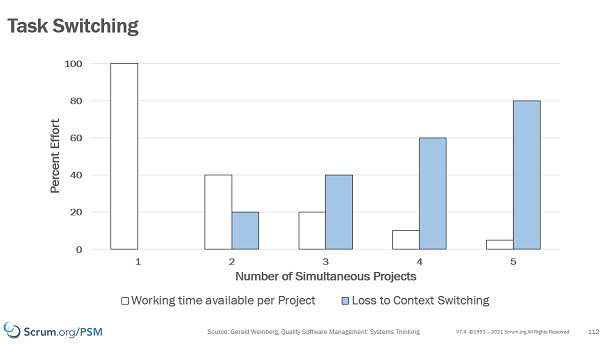In the Peoples And Teams section of the Professional Scrum Master course, we discuss the impact of Task Switching. We discuss that task switching destroys efficiency and quality.
Using the work of Gerald Weinberg's book, Quality Software Management: Systems Thinking, the course shows that if someone is working on 2 projects simultaneously the effort spent on both isn't 50% but 40%. The individual who is switching loses 20% effort to context switching.

That may not sounds a lot and people are often asked to work on more than one thing - this is a common question I asked in the class. It seems that the organisations believe this price a price worth paying, otherwise, why would so many people be asked to work this way? Maybe the true cost of it isn't made visible to the organisation.
A technique to make this visible is to show the financial cost of task switching.
Let's assume that a developer is being paid £$€600 per day for their effort. If the developer is working on two projects simultaneously then 20% of the £$€600 is lost to context switching - £$€120 - every day they are working on two projects simultaneously.
Extrapolate that out and over the year, assuming the number of weeks worked is 48, it is a loss of £$€28,800.00 all due to not being able to start work and finish it.

If you want to save money, potentially deliver early and deliver value sooner - help your colleagues to focus on one thing and one thing only. Then move onto the next
